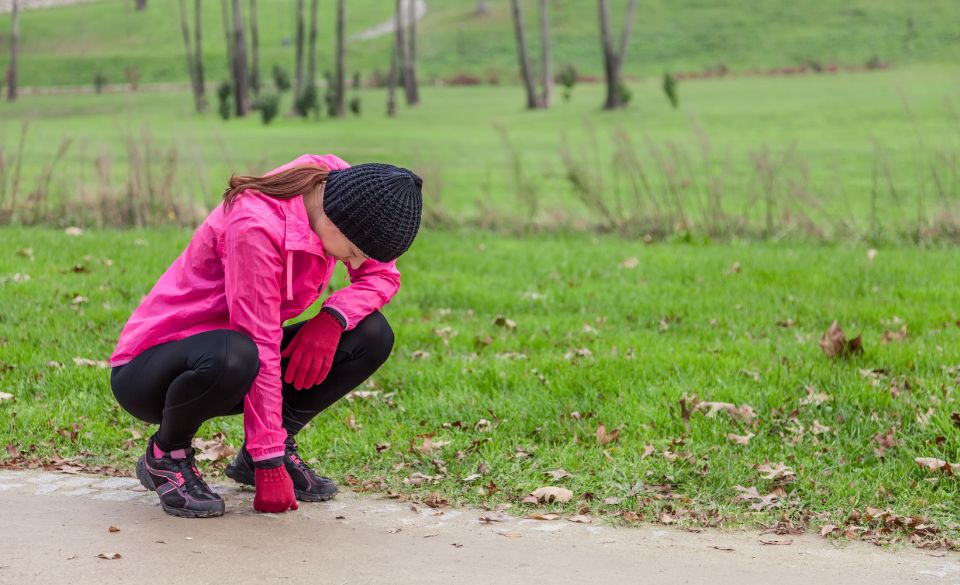
Why Do I Shiver After a Run?
Page Contents
Have you ever noticed that after a satisfying run, you start shivering despite feeling warm and sweaty during the exercise? You’re not alone! Many runners experience post-run shivering, and it’s a natural response triggered by various factors. In this blog post, we’ll dive into the science behind why you might shiver after a run and explore some effective strategies to stay warm and comfortable post-workout.
The Science Behind Post-Run Shivering
After an invigorating run, you may find yourself experiencing an unexpected shivering sensation despite feeling warm and sweaty during the exercise. The science behind post-run shivering lies in the intricate process of your body’s temperature regulation. When you engage in physical activity, such as running, your body generates heat to fuel your muscles and keep you moving. Consequently, your core temperature rises, and you may even break into a sweat as your body attempts to cool down.
However, the cooling mechanism doesn’t come to an immediate halt once you stop running. After completing your run, your body’s cooling system remains in high gear, and the blood vessels near your skin continue to dilate to dissipate excess heat. This can leave you feeling warmer than usual, even when you’ve stopped exerting yourself.
Shivering, a reflexive response, comes into play as your body strives to find a balance between heat production and dissipation. When you stop running and your blood vessels begin to constrict to retain heat, the cooling mechanism takes some time to switch off completely. Shivering is your body’s ingenious way of generating additional heat to keep you warm during this transition.
Moreover, shivering is controlled by the hypothalamus, a region in the brain responsible for regulating body temperature. When your core temperature drops slightly, the hypothalamus triggers shivering to increase heat production and raise your body temperature back to a comfortable level.
Factors such as the intensity and duration of your run, the ambient temperature, and your body’s individual response to exercise can influence the extent of post-run shivering. For instance, if you’ve been running in colder weather or have been pushing your limits during your workout, your body might shiver more intensely to restore thermal balance.
Hydration and Post-Run Shivering
Hydration plays a crucial role in post-run shivering. After an intense run, you lose fluids through sweat as your body works hard to cool down and maintain its core temperature. If you haven’t adequately rehydrated after your workout, it can lead to dehydration, which can contribute to feelings of coldness and shivering, even in relatively warm conditions.
When you’re dehydrated, your body’s ability to regulate temperature is compromised. Proper hydration is essential for maintaining blood volume and facilitating the efficient transfer of heat throughout your body. When you’re dehydrated, your blood becomes thicker, making it harder for your circulatory system to distribute heat effectively. As a result, you may feel colder and experience more intense shivering.
Furthermore, dehydration can lead to an electrolyte imbalance. Electrolytes, such as sodium, potassium, calcium, and magnesium, are essential for various physiological functions, including muscle contractions and nerve impulses. When you sweat, you lose electrolytes along with fluids. A lack of electrolytes can disrupt nerve signals and affect muscle function, potentially contributing to muscle cramps and shivering.
To prevent post-run shivering due to dehydration, it’s essential to rehydrate adequately after your run. Drink water or a sports drink with electrolytes to replenish the fluids and minerals lost during exercise. A general guideline is to drink at least 16 to 20 ounces (about 500 to 600 milliliters) of water for every pound (0.45 kilograms) of body weight lost during your run.
In addition to post-run hydration, staying hydrated throughout the day is equally important. Begin your day with a glass of water and continue to drink water regularly, especially if you know you’ll be running or engaging in other physical activities. Remember that thirst is not always an accurate indicator of hydration, so it’s best to sip water throughout the day to maintain optimal hydration levels.
By prioritizing hydration and replenishing fluids and electrolytes after your run, you can help your body maintain its temperature regulation function more effectively. Adequate hydration will not only prevent post-run shivering but also support your overall well-being and enhance your running performance.
Strategies to Stay Warm After a Run
Shivering after a run may be a normal response, but there are some strategies you can employ to stay warm and comfortable post-workout:
1. Layer Up:
Carry extra layers of clothing for after your run. As soon as you stop running, put on a dry shirt, jacket, or a warm hat to retain body heat and prevent shivering.
2. Stay Hydrated:
Make sure to rehydrate after your run to maintain your body’s temperature regulation function. Drink water or a sports drink with electrolytes to replenish lost fluids and support proper heat distribution.
3. Cool Down Gradually:
Finish your run with a gentle cool-down, such as walking or slow jogging. This gradual reduction in intensity allows your body to adjust to the change in activity level and temperature.
4. Seek Shelter:
If possible, find a sheltered spot to cool down after your run. Avoid staying in a cold or windy area, as it can exacerbate the shivering sensation.
Final Words – Why Do I Shiver After a Run?
Experiencing shivers after a run is a common and natural response as your body works to regulate its temperature after exercise. As you cool down, your body’s cooling system continues to work, leading to shivering in an attempt to generate additional heat. Additionally, dehydration can exacerbate shivering, so staying hydrated is essential.
By understanding the science behind post-run shivering and implementing some simple strategies like layering up, staying hydrated, and cooling down gradually, you can stay warm and comfortable after your runs. Embrace this natural response as a sign that your body is working hard to balance its temperature and appreciate the amazing journey you’ve just had on the road or trail.



